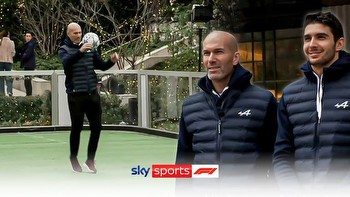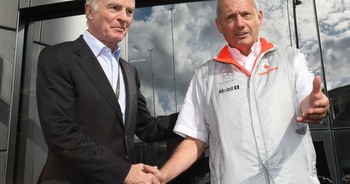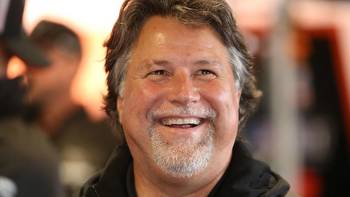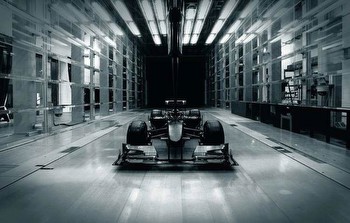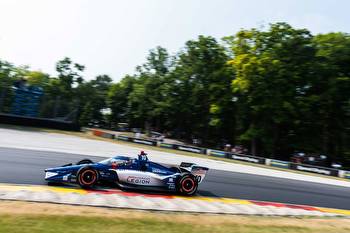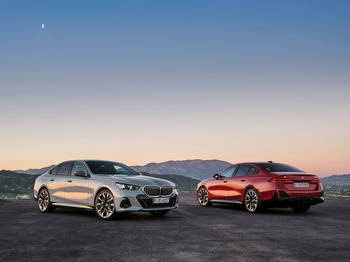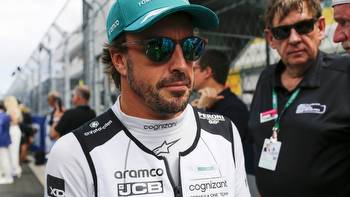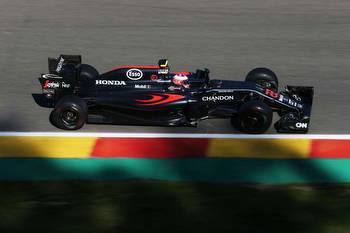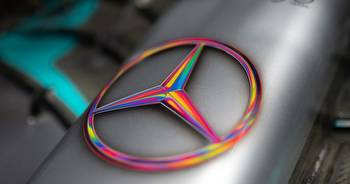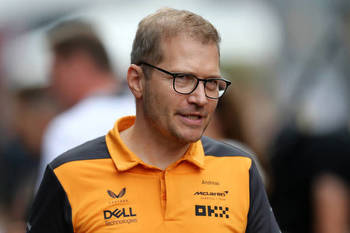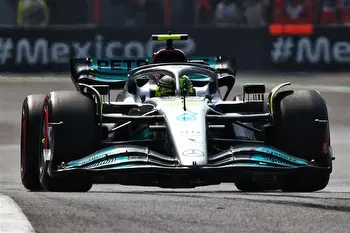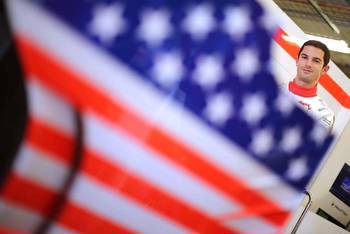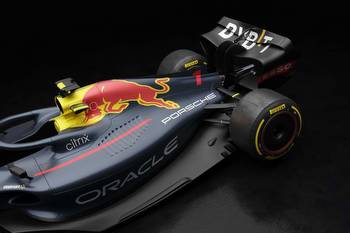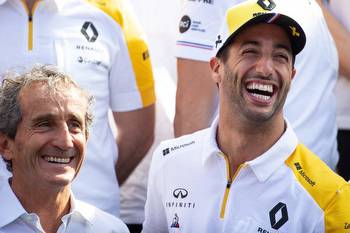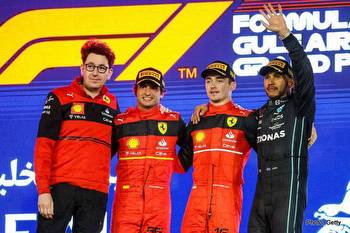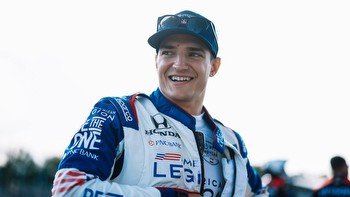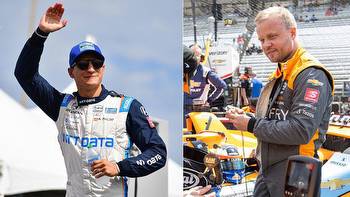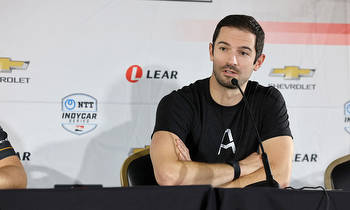What’s happened to McLaren’s ‘giant’ manufacturer links?
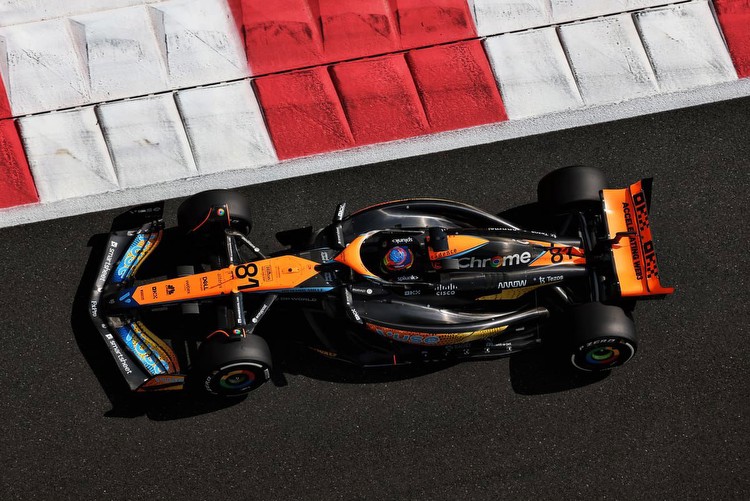
McLaren's Formula 1 team is plotting a path to fighting for world championships as an independent using customer engines, despite various links to manufacturer tie-ups - the most recent being late last year.
The first example of such speculation was when Toyota driver Ryo Hirakawa joined McLaren's driver development programme, announced at the Japanese Grand Prix, sparking a lot of questions about whether it could be the start of a McLaren-Toyota F1 tie-up of some kind.
Then, more subtly, in December the McLaren Group was tipped to land a "global industry giant" to partner its road car company - something that could easily be connected to the F1 team too, if it came to pass.
But it seems to have ended there, with no development since the McLaren Group agreed to a “full recapitalisation” that will leave it fully owned by the Kingdom of Bahrain and is what could supposedly lead to a manufacturer tie-up in the future.
What's happened to that speculation? And has there been any substance to the links that teased such a curious potential future for McLaren, in F1 or out of it?
McLaren Group announced in December its shareholders “unanimously approved a full recapitalisation of the Group” that “will introduce a simplified share structure and streamlined governance process”.
This was said by a Sky News report to mean Bahrain’s Mumtalakat Holding Company will assume 100% shareholding of the Group.
The McLaren Group controls McLaren Automotive and is the majority owner of McLaren Racing having sold up to a third of the company that races in F1, IndyCar, Formula E and Extreme E to US investment company MSP Capital in late 2020.
While McLaren described it as a “significant step in the ongoing transformation of the Group and provides a solid platform from which to grow our product offering and brand presence”, Sky speculated that this could just be a precursor to other big moves in the short-term.
Its report said it brought McLaren closer to realising “long-term plans to secure a partnership with a global industry giant”, and “is likely to pave the way for a technology partnership with an automotive original equipment manufacturer in the coming years”.
Norris's new deal might not be as 'long term' as McLaren hopesThis is likely to be part of the process of shoring up the Automotive company’s future rather than heralding an imminent F1 deal - especially as McLaren has tied itself to a Mercedes customer engine arrangement until 2030.
That does not mean any future deal has no chance of F1 crossover, but while the Racing division has gone from strength to strength in the last few years the Group itself and its sister Automotive organisation have had their work cut out.
In 2023, McLaren Group announced the start of a “recapitalisation project” that included a £450m injection of funding from existing shareholders and was described as a transaction that will “ensure a simpler capital structure as well as streamlined corporate governance".
It was also said the “recapitalisation, once completed, will reconfirm the long-term commitment of our shareholders to the McLaren Group”. This seems to be what happened in December.
“We're a separate entity,” said McLaren Racing CEO Zak Brown.
Mark Hughes on McLaren's worrying Red Bull theory“Obviously, we share a brand with McLaren Automotive, the stronger they are, the better.
“We work very closely together but that is a separate entity.
“What happens there, it is good news for Automotive, it gives them the resources and the commitment they need.
“Much like Mumtalakat provided us when they brought in investment, that was to give us the resources we needed to get back to where we are now: challenging for podiums and being fiscally healthy and being able to invest in drivers like Lando and Oscar.
“So it's all good news.”
Toyota's a good fit
Though no manufacturer was named by Sky, a McLaren automotive tie-up with Toyota seems to make the most sense. If so it would raise - once again - the possibility of a partnership on the F1 side as well.
From a Group perspective, tying up with a manufacturer like Toyota, which is the world’s biggest manufacturer of hybrids, to have access to technology and expertise would be an obvious benefit for McLaren’s automotive company.
McLaren has just moved into the hybrid market for the first time with its 2023 model the Artura, its first hybrid supercar.
Why 'diluted' McLaren needs three F1 technical directorsCombustion engine cars, hybrids and fully electric vehicles are all in McLaren’s plans for future car line-ups.
The advantage for Toyota in an automotive sense is not immediately obvious given the recapitalisation plan presumably means there is no stake in the Group available in the short-term.
But Toyota would be able to forge an alliance with a supercar manufacturer, something it lacks in a portfolio comprising its eponymous mass-production cars and luxury brand Lexus.
And while Toyota is not actively pursuing its own standalone F1 project, it may be interested in working with McLaren on the automotive side and spinning an F1 involvement from that.
There was already speculation towards the end of 2023 that McLaren’s F1 team and Toyota’s motorsport division could start working together in a new way, following the conclusion of the simulator deal that had McLaren using Toyota’s facility in Cologne.
It followed McLaren signing Toyota driver Ryo Hirakawa as an F1 reserve, an announcement that coincided with Toyota president Akio Toyoda visiting McLaren at the Japanese Grand Prix.
What you need to know about the driver Toyota has given McLarenMcLaren team boss Andrea Stella did hint that a closer tie with Toyota was possible, in the form of “a bit of exchange of how we deal with performance, how we deal with driver development”.
“We want to sort of expand our horizons a bit,” Stella said last October.
That was billed purely as an addition to McLaren’s driver development programme that Toyota was keen to facilitate, and nothing more.
A spokesperson for Toyota Gazoo Racing in Japan told The Race: “We don’t have any plans or activities related to Formula 1 as TGR.
“TGR will continue to support Ryo's lifelong goal and to grow as a racing driver.”
Of course, an automotive-level partnership that is parlayed into a minor F1 involvement would be different to a TGR F1 project.
There is no indication Toyota is readying or interested in a works F1 team, or an engine programme, for example, although it is worth noting that president Toyoda has indicated a change of attitude towards F1 since Toyota canned its failed, expensive works team at the end of 2009.
He was reported as saying that the F1 he had seen at the Japanese GP was different to what he had previously thought, sparking some speculation in Japan that the manufacturer could eventually make a return to F1 after all.
F1 team has set its own course
It is becoming increasingly common for teams and manufacturers to strike deals that tap into different tie-ups.
Examples include Alfa Romeo branding Sauber in its image for several seasons, ending in 2023, and Ford partnering with Red Bull for the 2026 engine rules in a deal many believe is a mostly commercial deal with some technological involvement.
The telling difference between two key Red Bull rivalsSo, should Toyota or another manufacturer start working with the McLaren Group on developing its hybrid and/or electric vehicle range, there could also be opportunities to take an interest in the F1 team too.
This could, for example, facilitate a cut-price and convenient Toyota F1 involvement and give McLaren’s F1 team another premium partner.
But that seems as far as McLaren would be likely to go. McLaren Racing has made it clear several times in recent years that its shareholders have no interest in selling and want to keep the McLaren name. This is what scuppered hopes of Audi and Porsche striking a deal with the team.
A new investor taking full control of the Group would presumably be a different proposition but as the Group ownership is fundamentally staying the same, remaining in Mumtalakat’s hands, the direction of the F1 team is likely to stay the same too.
McLaren wants Norris to match Verstappen in key areaMumtalakat will presumably remain the existing majority shareholder of Racing and it actively chose to bring in MSP Capital as a significant albeit minority investor of the Racing company as well.
Any McLaren Group tie-up with a manufacturer – be that Toyota or anyone else – would therefore not signal a takeover or rebrand of the F1 team as well unless Mumtalakat decided to sell part of its majority share in Racing to that manufacturer, or MSP wanted out.
Neither scenario has been mooted. And the F1 team’s long-term vision has been set given extensive investment into the new windtunnel and simulator at the McLaren Technology Centre in Woking, and the extension of the Mercedes deal for the next set of engine rules.
Whatever the McLaren Group does next in the interest of Automotive, the Racing division looks more in charge of its own destiny. And, at least immediately, as Brown said: "It has no ramifications for the Formula 1 team."

